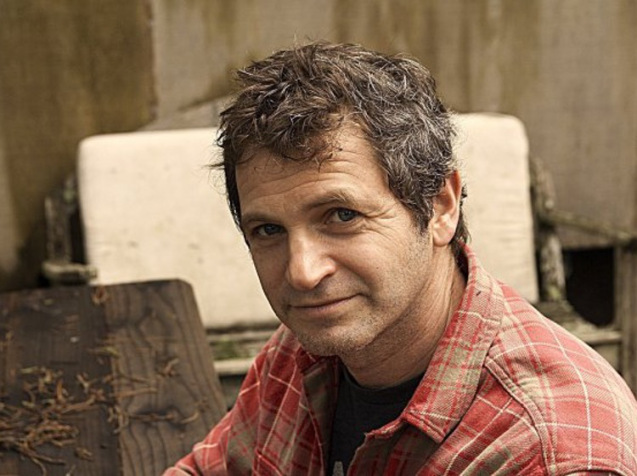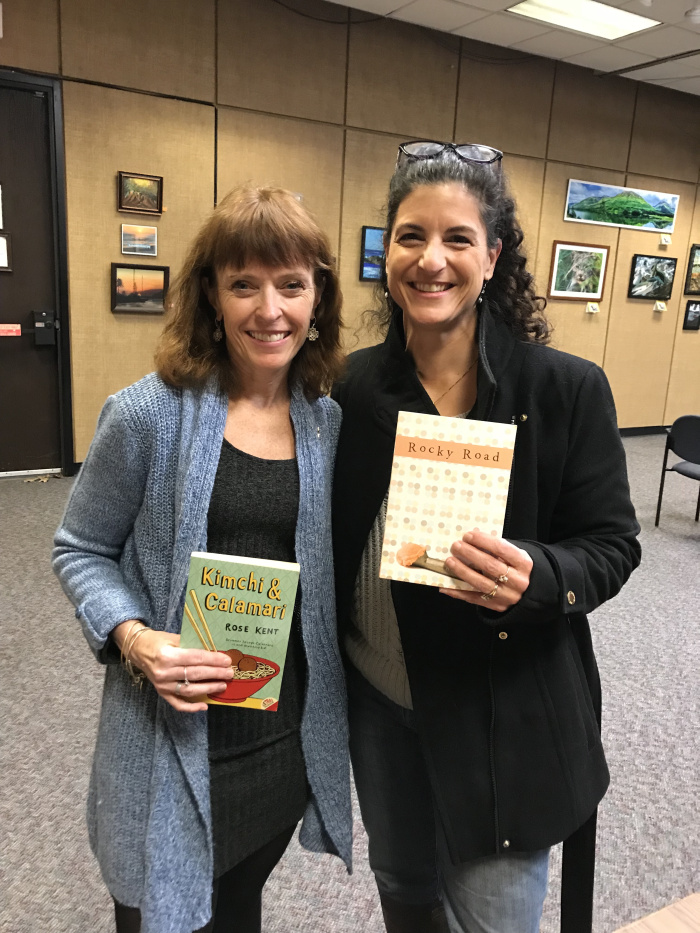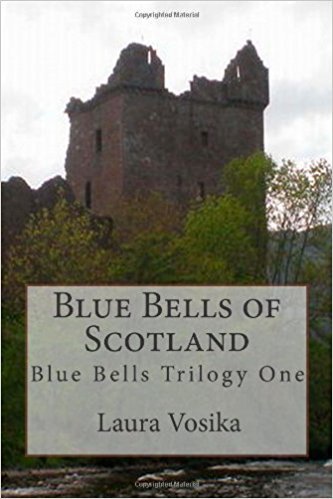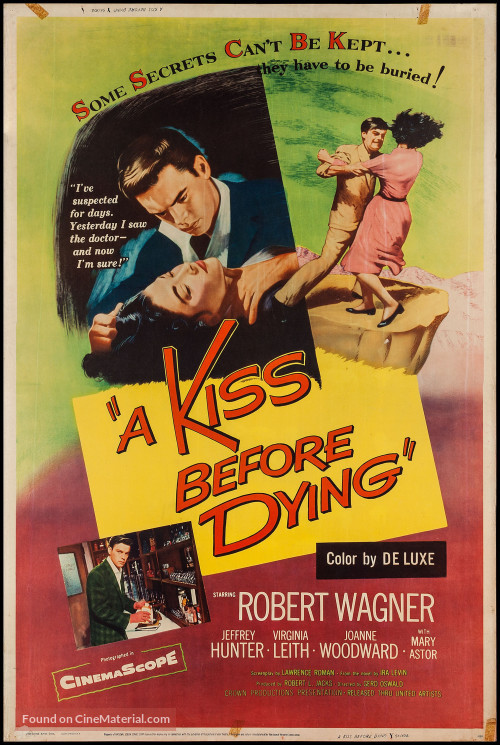
I saw this quote recently, probably on facebook or Instagram, and it stopped me.
The trees are about to show us how lovely it is to let the dead things go. –Annonymous

I’ve always loved when the trees explode in their own display of fireworks–the riot of red and blazing orange that woo our gaze with their warmth and heat the crisping autumn sky. But I never realized it’s a celebration of dead things.

Before those leaves are shed, they’re colored crimson.
Before those leaves are discarded, they’re dipped and dyed flaming yellows.
But they will be shed, and they will be discarded, because those leaves, they are dead.
There’s no hope of life left to linger. They are completely and utterly dead.
When autumn’s fireworks have ceased, we see the naked and bare limbs of maples, their trunks like elephant legs, and it gives us a quiet, lonely sense about the world.
But in their naked state, they’re actually more alive than when the flaming leaves hold on to their branches heralding autumn’s last hoorah.
They’re alive because they let go of the dead things.
They’re alive because they’ve shed that which, if left to stay, would prevent the budding bumps of new growth come spring.
Life means letting go of dead things.
If we hold onto to dead things forever, we cling to crumpled remnants of what will never be. We cling to the grave.
We do that, don’t we? Cling to the grave?
Hold onto a grudge when forgiveness is budding beneath, pressing and pushing and praying to be released in our lives.
Hold onto paralyzing fear when trust is a trigger ready to be pulled, and peace wants desperately to be launched.
Hold onto material things and worldly goals when eternal things and heavenly pursuits are shoots pushing at the surface of our soul beckoning us to release them into a hungry, hurting world.
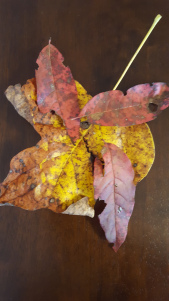
We like the dead things because they’re deceptively beautiful.
Because let’s be honest, whether we want to lose weight but can’t let go of our lattes and french fries or we want to see our marriage restored, but can’t get past the years of hurtful, angry words, we’re holding onto things we think will satisfy. Mirages of the soul.
But eventually, their beauty crumbles in our grasp, and we’re left with dust.
For years my sisters and I would take our children to Nana’s house to rake leaves. We didn’t have a leaf-blower, and the yard was too big for my mom to clean up all by herself, so we made a game of it with the kids. We’d all work together to gather the leaves in a massive mountain. When the yard was bare, our kids were released to dive into the mountain of maple, poplar, and oak leaves. I can still see them jumping in, taking turns diving and flipping, their cheeks pink with brisk autumn air and excitement.
But the leaves would get crushed and scattered.
We’d rake them back up over and over, but after a while, the mountain would become a hill.
The hill would become a bump.
And before too long, we’d drift away, lose interest, and the leaves would be left to decompose.
Because that’s what happens with dead things.
They don’t hold the weight of real life for very long, and they can’t stand up to actual use.
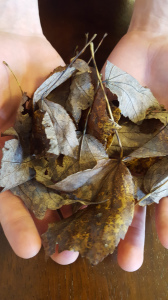
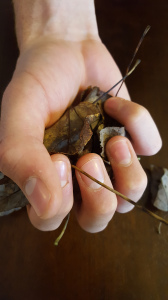
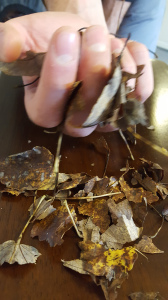
The trees are about to show us how lovely it is to let the dead things go.
The trees, they know the secret to a lovely life is releasing the dead and allowing the new to be birthed within us, through us, out of us.
Loveliness is the daughter of letting go.
Paul talked about this too. He understood that as Christians, we’re literally in Christ and He’s literally in us, and therefore, the capacity for new life is in us. He understood that if that holy capacity is within us, then it is for us to let go of the old ways and allow the new life of Christ to emerge.
You were living in your sins and lawless ways. But in fact you were dead. You used to live as sinners when you followed the ways of this world. You served the one who rules over the spiritual forces of evil. He is the spirit who is now at work in those who don’t obey God. At one time we all lived among them. Our desires were controlled by sin. We tried to satisfy what they wanted us to do. We followed our desires and thoughts. God was angry with us like he was with everyone else. That’s because of the kind of people we all were. But God loves us deeply. He is full of mercy. So he gave us new life because of what Christ has done. He gave us life even when we were dead in sin. Ephesians 2: 1-4a
The lovely life is the promised gift of God; the lovely life is a life that knows how to shed.
. . . seeing that you have put off the old self with its practices and have put on the new self . . . Col. 3:9b,10a
To put off your old self, which belongs to your former manner of life and is corrupt through deceitful desires, and to be renewed in the spirit of your minds, and to put on the new self, created after the likeness of God in true righteousness and holiness. Eph: 4:22-24
When I shed the dead, I bear the likeness of God—the beauty of His holiness.
When I shed the dead, I bear the image of the divine.
It’s hard, though, isn’t it? When the dead is that thing that broke us? Crushed us? And we never want to forget, so we hold it tight in one hand and reach for life with the other, hoping we can somehow have both. But death and life are darkness and life and they don’t fellowship well with one another, and you and I? We’ve got to choose, don’t we? Why do we forget that life comes when we let the old ways die? Why do we hold on to that which will give us nothing but sorrow? We bite the fruit over and over again thinking that this time, it will be sweet when only that which finds its source in Christ is sweet to our soul.
I can’t get this quote out of my mind,and I am determined to etch this shedding the dead into my heart. So I go outside, and I get a crimson sumac branch and break it from the trunk it’s clinging to. I bring it inside. This year, as I think of the holiday season approaching, the season of gratitude and then the season of giving, I think to myself, I’ll strip the dead things and replace them with living things.
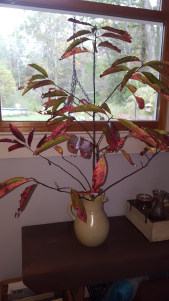
So I place the tree in a pitcher and sit with my boys. I ask them to think of the dead things they may be clinging to. I ask the same of myself. And as the Holy Spirit brings them to mind, we’ll remove one of the dried, brittle leaves and replace it with an ornament of life.
When we lay our electronics down—all of them, the laptops, the cell-phones, the television, and pick up a game to play together, we’ll remove a leaf and replace it with life. Time connecting as a family.
When we apologize for the short, clipped words we used with one another, we’ll crumple and crush one of those leaves and replace it with life. Kindness, patience.
When we surrender our lengthy Christmas lists to God’s economy, we’ll replace the dead with giving life to others.
I can’t grasp the living if I’m gripping the grave. I don’t want my legacy to be that of a grave robber when the option to be a life-giver is out there.
So, I’m going to choose to shed, choose life.
This will be the first Christmas tree we decorate this year. Before the matching-pinteresty one, before the antique one loaded with ornaments from a life spent collecting memories and moments. This tree will go up before the others. This tree that was dead and brought back to life.
The Shedding Tree that becomes The Living Tree.
And he who was seated on the throne said, “Behold, I am making all things new.” Also he said, “Write this down, for these words are trustworthy and true.” Revelation 21:25
All the dead things new this year. He’s doing that in us, isn’t He? It’s trustworthy. It’s true.
Life.
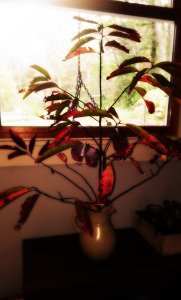
Advertisements Share this:
- More
